 What Are The Common Causes of A Blocked Shower
What Are The Common Causes of A Blocked Shower
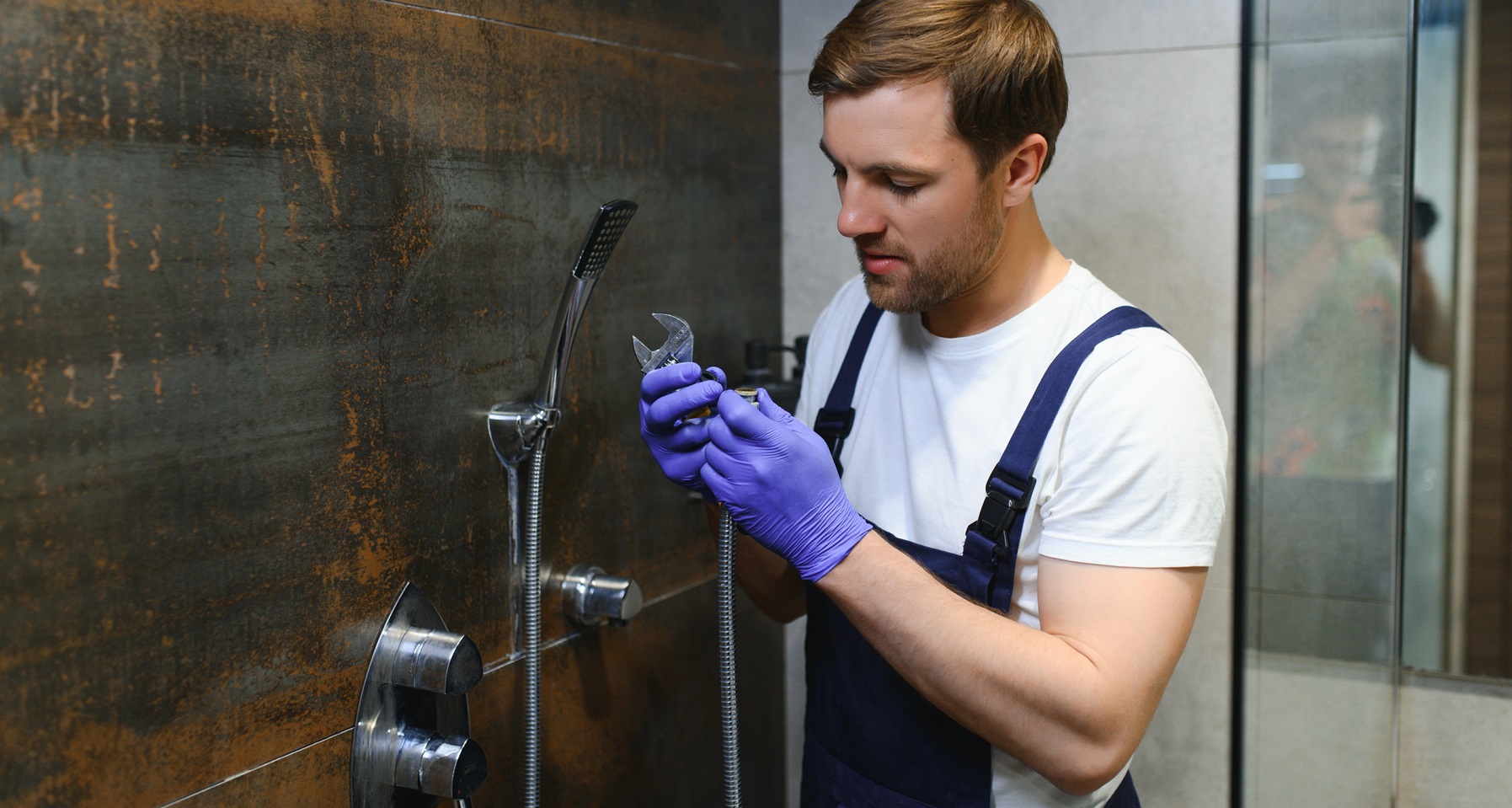
Understanding the components and significance of a well-maintained shower drainage system is essential for property functionality and hygiene. Blocked showers can lead to a host of issues, from minor inconveniences to significant property damage.
Components of a Shower Drainage System
A shower drainage system typically consists of a drain hole, a trap to prevent sewer gases from entering the home, pipes that carry the water away, and often a vent system to maintain proper drainage flow.
Importance of Clear Shower Drains
Clear shower drains are crucial for the efficient removal of wastewater. This prevents standing water, which can become a breeding ground for bacteria and emit unpleasant odours, thus maintaining a hygienic bathroom environment.
Impact of Blocked Showers
Blocked showers can cause water to back up, leading to potential bathroom flooding. This not only disrupts daily routines but can also result in costly water damage and create health hazards due to the proliferation of mould and mildew.
Origins of Blockage Issues
Blockages typically originate from the accumulation of hair, soap scum, and other debris within the drainage system. These materials can entangle and compact over time, forming clogs that obstruct the flow of water.
By addressing these foundational aspects, property owners can better understand the importance of maintaining a clear and functional shower drainage system.
Hair Entanglement and Its Impact on Shower Drains
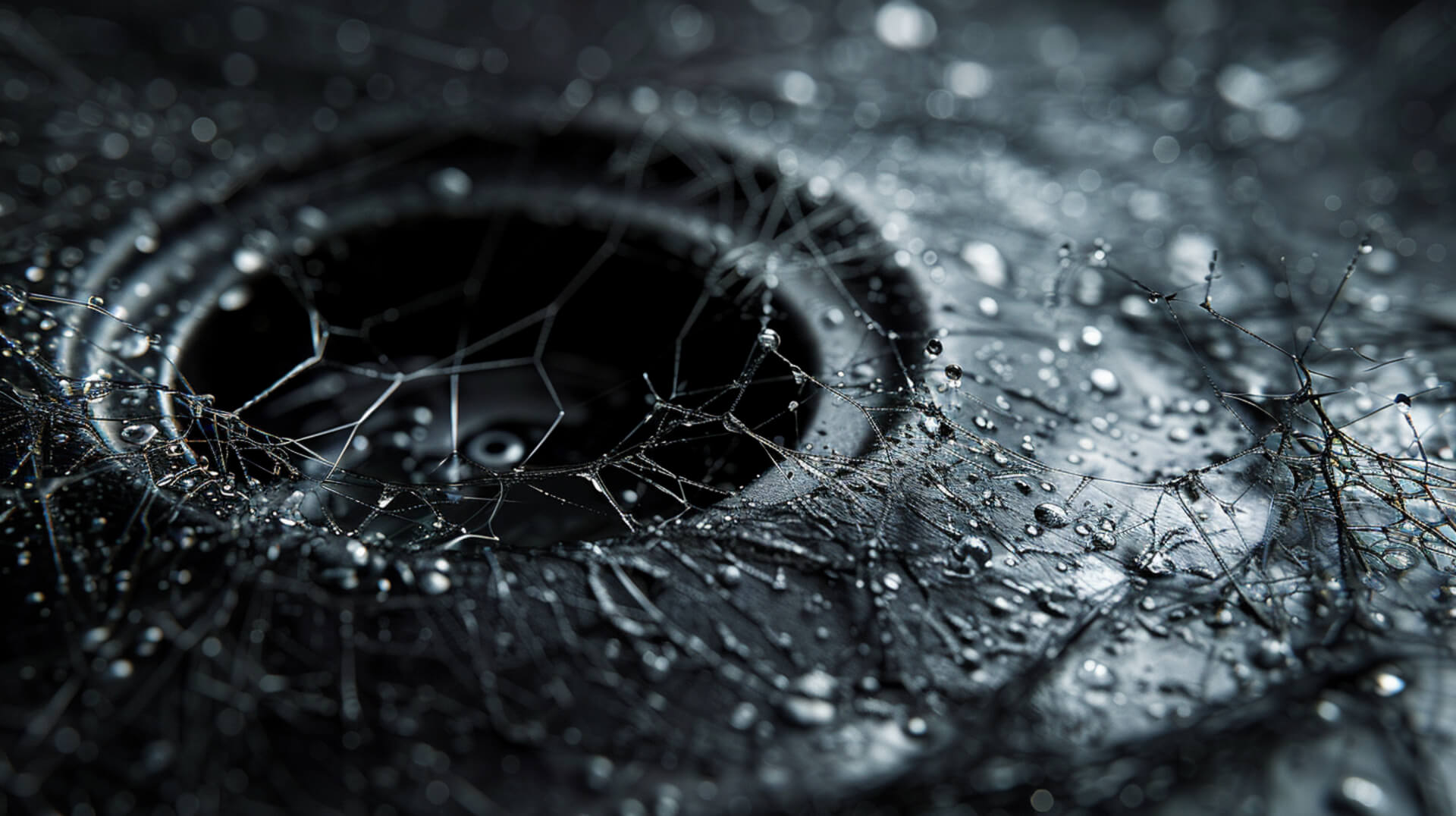
Understanding the role of hair in shower drain blockages is crucial for maintaining a functional bathroom. Hair is a primary contributor to clogs due to its fibrous nature, which allows it to entangle with other debris and form dense masses. Long strands of hair, in particular, are more likely to cause blockages as they can easily knot and trap other particles.
Types of Hair Causing Blockages
All hair types have the potential to block drains, but long, thick strands are especially problematic. They can bind with grease and other sticky substances in the drain, creating significant clogs.
Interaction with Other Debris
Hair can act as a net, catching and holding smaller particles like soap scum, dirt, and even small objects. Over time, this accumulation can lead to a complete obstruction of the water flow.
Primary Causes of Drain Blockages
Hair’s structure makes it a common culprit in shower drain blockages. It does not break down easily and can remain in the drainage system, accumulating over time.
Preventive Measures
To prevent hair blockages, you can instal drain strainers or catchers to trap hair before it enters the drainage system. Regularly cleaning these devices and avoiding brushing hair in the shower can significantly reduce the risk of clogs. Additionally, routine maintenance, such as flushing the drain with hot water, can help keep hair and soap residue from building up.
The Role of Soap and Detergents in Drain Blockages
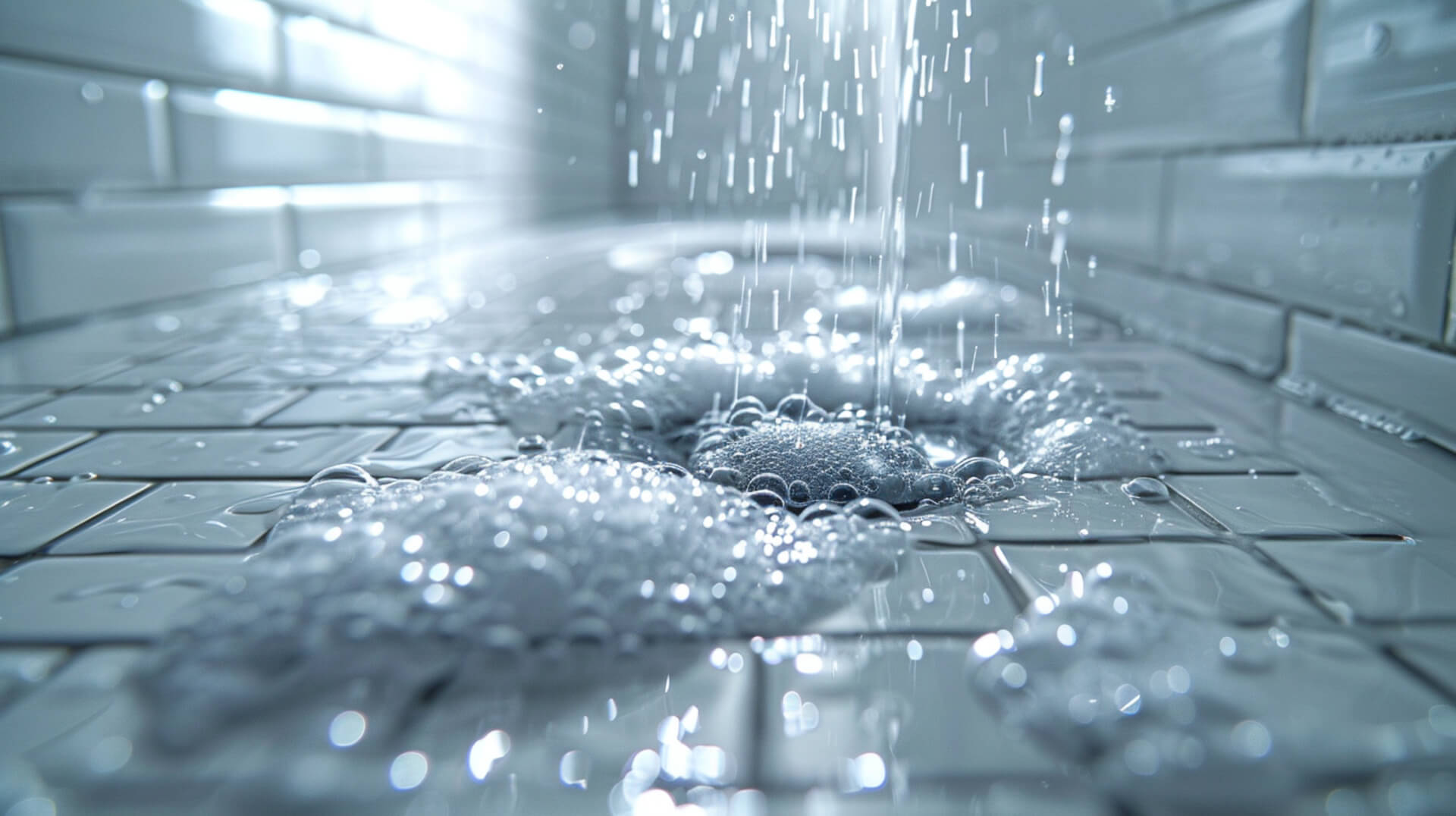
The type of soap you use in your shower can significantly affect the likelihood of drain blockages. Traditional bar soaps often contain fats that combine with minerals in water to create soap scum, a hard residue that adheres to pipes and contributes to clogs. Liquid soaps, on the other hand, tend to produce less residue, making them a preferable option for minimising blockages.
Traditional Soaps Versus Liquid Soaps
Traditional bar soaps are more likely to cause drainage issues due to their composition. When these soaps mix with hard water, they leave behind a sticky residue that can trap hair and other debris. Liquid soaps, which often contain fewer fats and oils, are less prone to forming scum and are therefore less likely to contribute to blockages.
Problematic Soap Ingredients
Ingredients such as saponified oils, glycerine, and hydroxyethyl cellulose in soaps can contribute to the buildup in drains. These substances can solidify within the pipes, narrowing the passage for water to flow through and increasing the risk of clogs.
Selecting Soaps to Minimise Drainage Issues
To minimise drainage issues, property owners should consider using liquid soaps and detergents that are designed to break down more easily in water. Additionally, choosing products specifically labelled as “septic-safe” or “drain-safe” can help reduce the likelihood of blockages. Regular cleaning of the shower area and drain can also prevent the accumulation of soap residue.
Hard Water Versus Soft Water Effects on Shower Drains
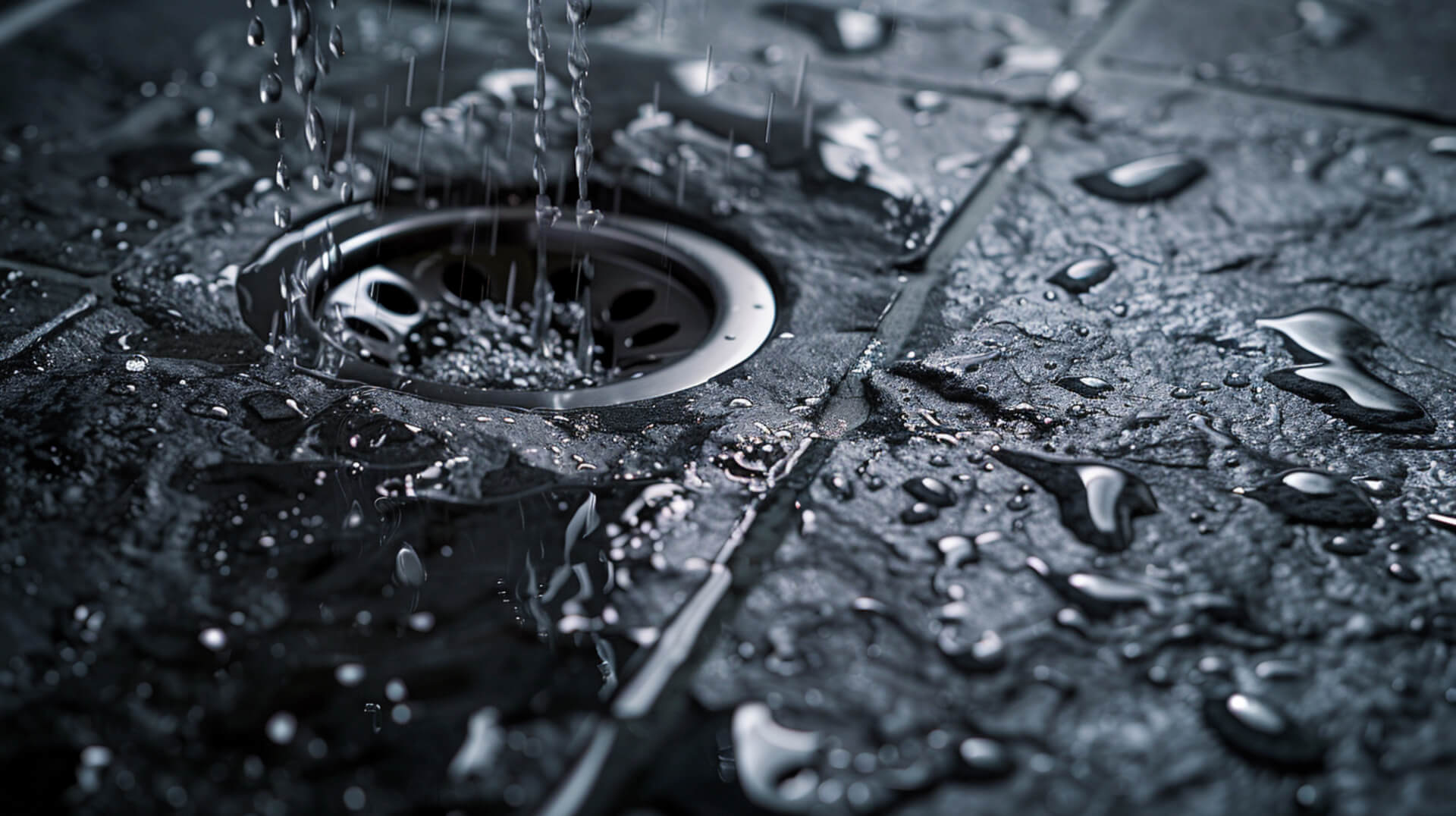
The distinction between hard and soft water is a key factor in the maintenance of shower drains. Hard water contains high levels of minerals like calcium and magnesium, which can lead to the formation of limescale and soap scum, contributing to blockages. Soft water, with its lower mineral content, is less likely to cause such buildup.
Understanding Hard Water
Hard water is characterised by its mineral richness, particularly calcium and magnesium. These minerals can combine with soap to form a sticky residue that adheres to the insides of pipes, restricting water flow and eventually leading to blockages.
Contribution to Drain Blockages
The minerals in hard water react with soap, creating a hard, insoluble substance known as soap scum. Over time, this scum accumulates, narrowing the diameter of the pipes and trapping other debris, which can result in a clogged shower drain.
Portland’s Soft Water Advantage
Portland benefits from naturally soft water sourced from the Bull Run Watershed. This water type is less likely to cause the buildup of limescale and soap scum, making shower drains less prone to blockages.
Managing Hard Water in Properties
For properties not serviced by naturally soft water, solutions such as installing a water softener can be effective. Water softeners remove the excess minerals from the water, preventing the formation of limescale and soap scum. Regular descaling and professional assessments can also help in managing the effects of hard water on plumbing systems.
Signs of a Clogged Shower Drain
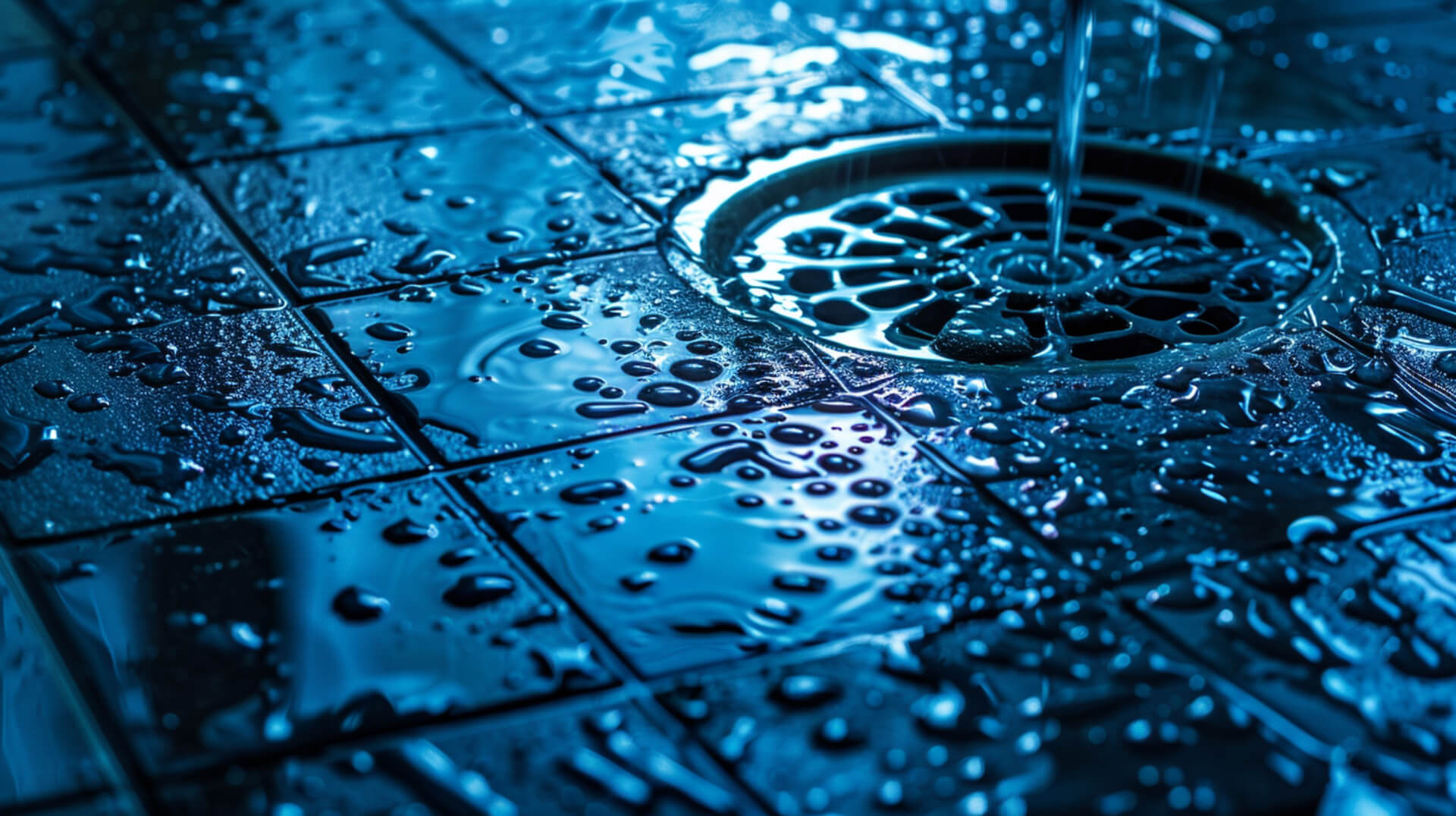
Recognising the early signs of a clogged shower drain can prevent more serious plumbing issues. Property owners should be vigilant for these indicators to address the problem promptly.
Identifying Early Warning Signs
Several symptoms can alert you to a potential blockage in your shower drain:
- Slow Drainage: Water pooling around your feet during a shower is often the first sign of a clog forming.
- Unpleasant Odours: Foul smells emanating from the drain can indicate trapped organic material that is decomposing.
- Gurgling Sounds: Noises from the drain may suggest air is trapped by a blockage in the pipes.
Understanding the Implications of Slow Drainage
Slow drainage typically precedes a complete blockage. It suggests that the pathway for water is becoming restricted, often due to the accumulation of hair, soap scum, or other debris.
Recognising the Significance of Unpleasant Odours
Unpleasant odours are a clear sign that waste material is not being properly flushed away. This can be due to a partial blockage that allows some drainage but retains decomposing material.
Taking Action on Early Signs
When these signs are observed, it’s advisable to act immediately. Simple measures like using a plunger or a drain snake can often resolve minor clogs. For persistent issues, professional assessment may be necessary to prevent further damage to the plumbing system.
DIY Methods for Unblocking Shower Drains
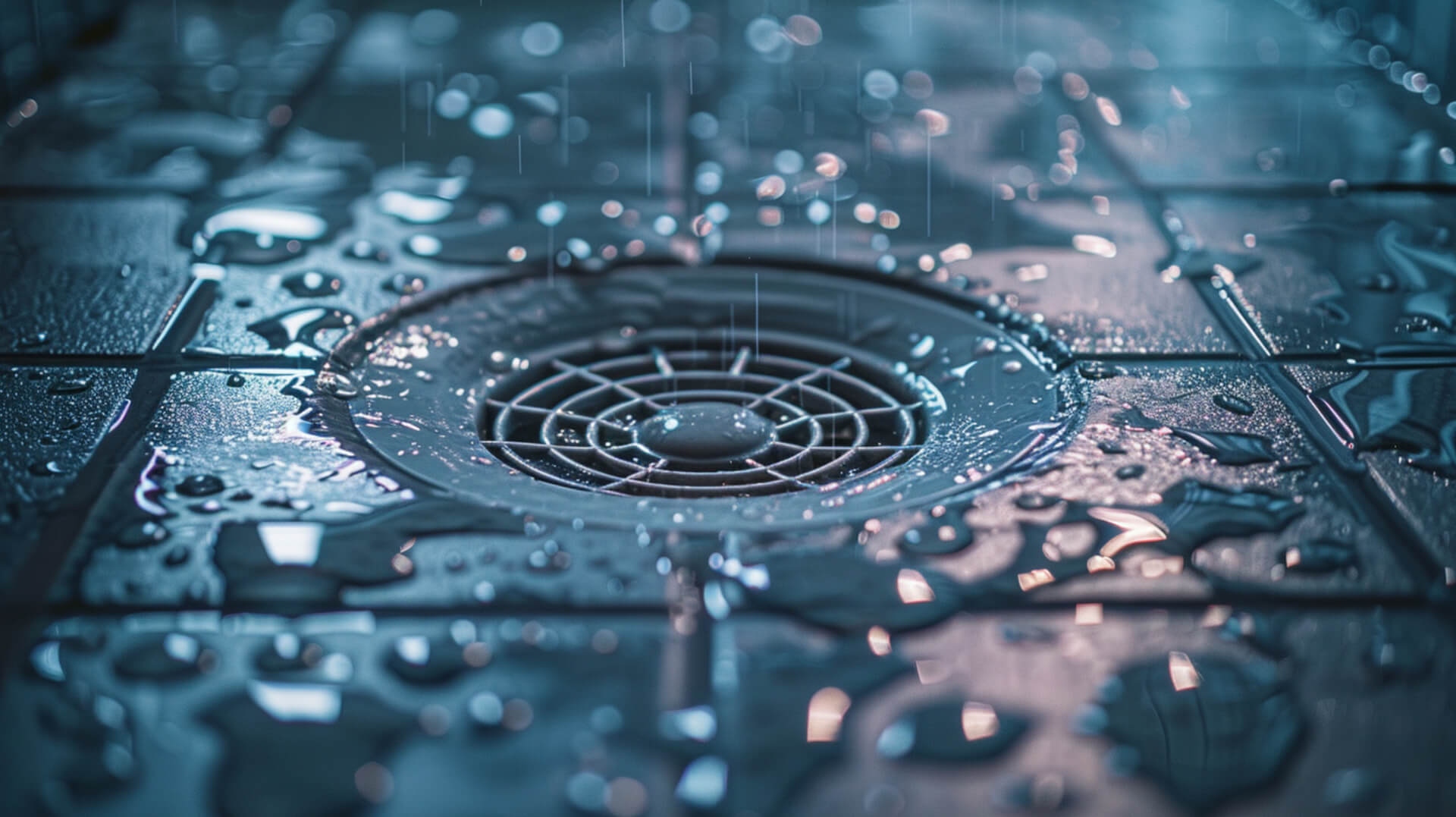
When faced with a clogged shower drain, there are several household items and methods you can employ before considering professional assistance. These DIY solutions are often effective for minor blockages and can save time and resources.
Utilising Baking Soda and Vinegar
A popular home remedy involves the use of baking soda and vinegar:
- Pour a cup of baking soda directly into the drain.
- Follow with a cup of white vinegar.
- Allow the mixture to fizz and work for several minutes.
- Rinse with boiling water to clear the residue and dislodged debris.
This combination creates a chemical reaction that can break down the grime and loosen clogs.
Cautions Against Chemical Unblockers
While chemical unblockers can be effective, they are not always recommended due to their potential to damage plumbing and harm the environment. These products may contain harsh substances that can corrode pipes over time.
Timing for DIY Interventions
Property owners should consider DIY methods when the blockage is new or minor. Simple tools like a plunger or a plumber’s snake can be effective for removing obstructions. If the blockage persists after these attempts, it may be time to seek professional services to prevent further complications.
When to Seek Professional Drainage Services
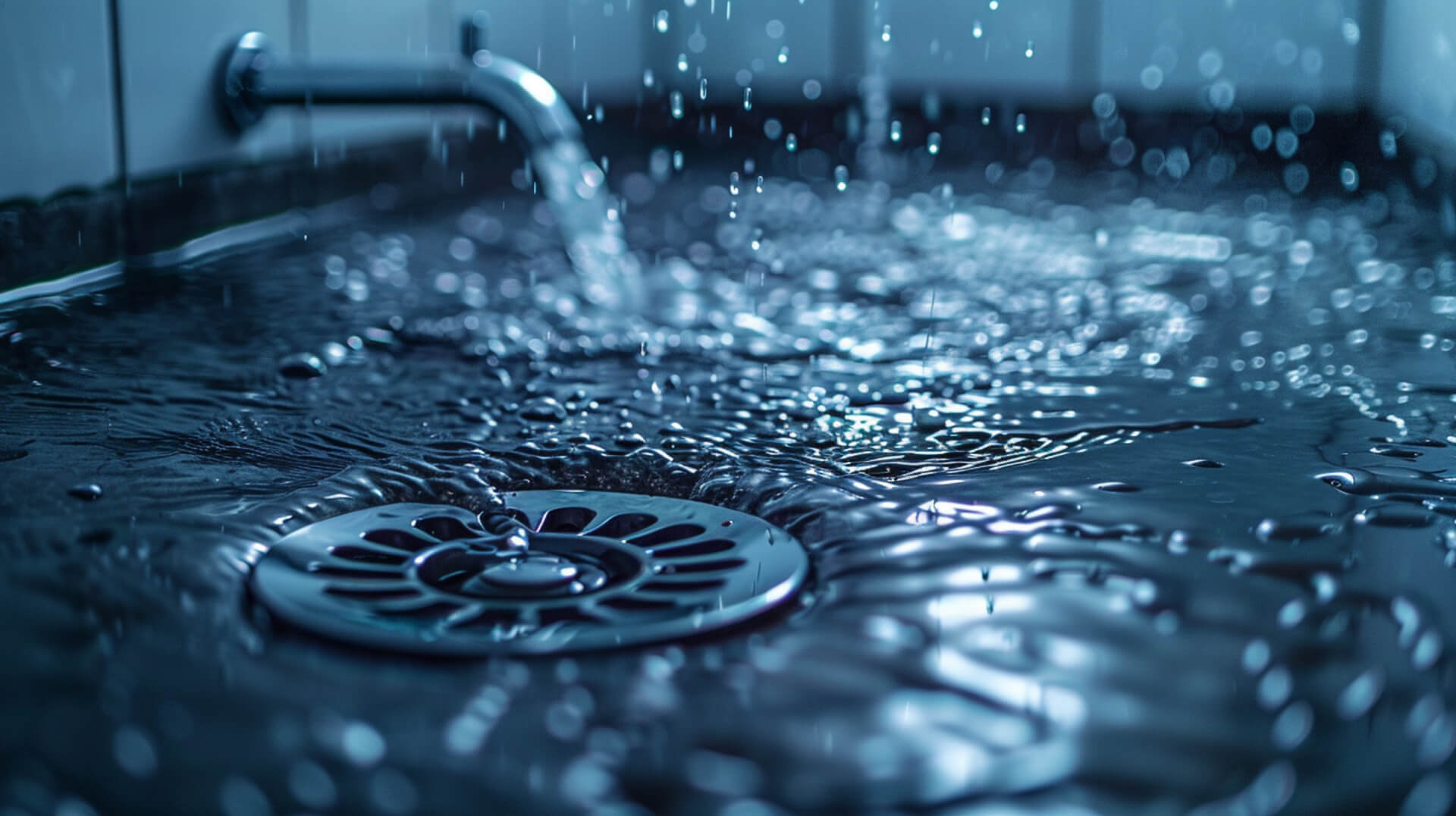
In managing shower drainage, there are circumstances where professional intervention becomes necessary. Recognising these situations can save you from further inconvenience and potential damage to your property.
Conditions Requiring Professional Help
You should consider professional services when faced with:
- Persistent or repeat blockages that resist standard DIY methods.
- Suspected poor pipe installation or structural issues within the plumbing system.
- Visible signs of broken or severely damaged pipes.
- Large obstructions that cannot be dislodged through plunging or snaking.
Professional Approach to Blockages
Professionals address drainage issues by:
- Conducting thorough inspections to identify the root cause of the blockage.
- Utilising advanced tools such as motorised drain augers or hydro-jetting equipment.
- Repairing or replacing damaged sections of the plumbing system if necessary.
Importance of Expertise in Complex Cases
Expert intervention is crucial for complex drainage problems to ensure:
- The blockage is completely removed without causing damage to the pipes.
- Any underlying issues with the plumbing are identified and rectified.
- Future blockages are prevented through proper repair and advice on maintenance.
Range of Professional Services
A comprehensive suite of services offered by professionals includes:
- Plumbing and sewer cleaning to clear blockages.
- Sewer repair for damaged or collapsed lines.
- Preventative maintenance to keep the drainage system functioning optimally.
- Emergency services for urgent blockage issues.
Preventative Measures for Shower Drains
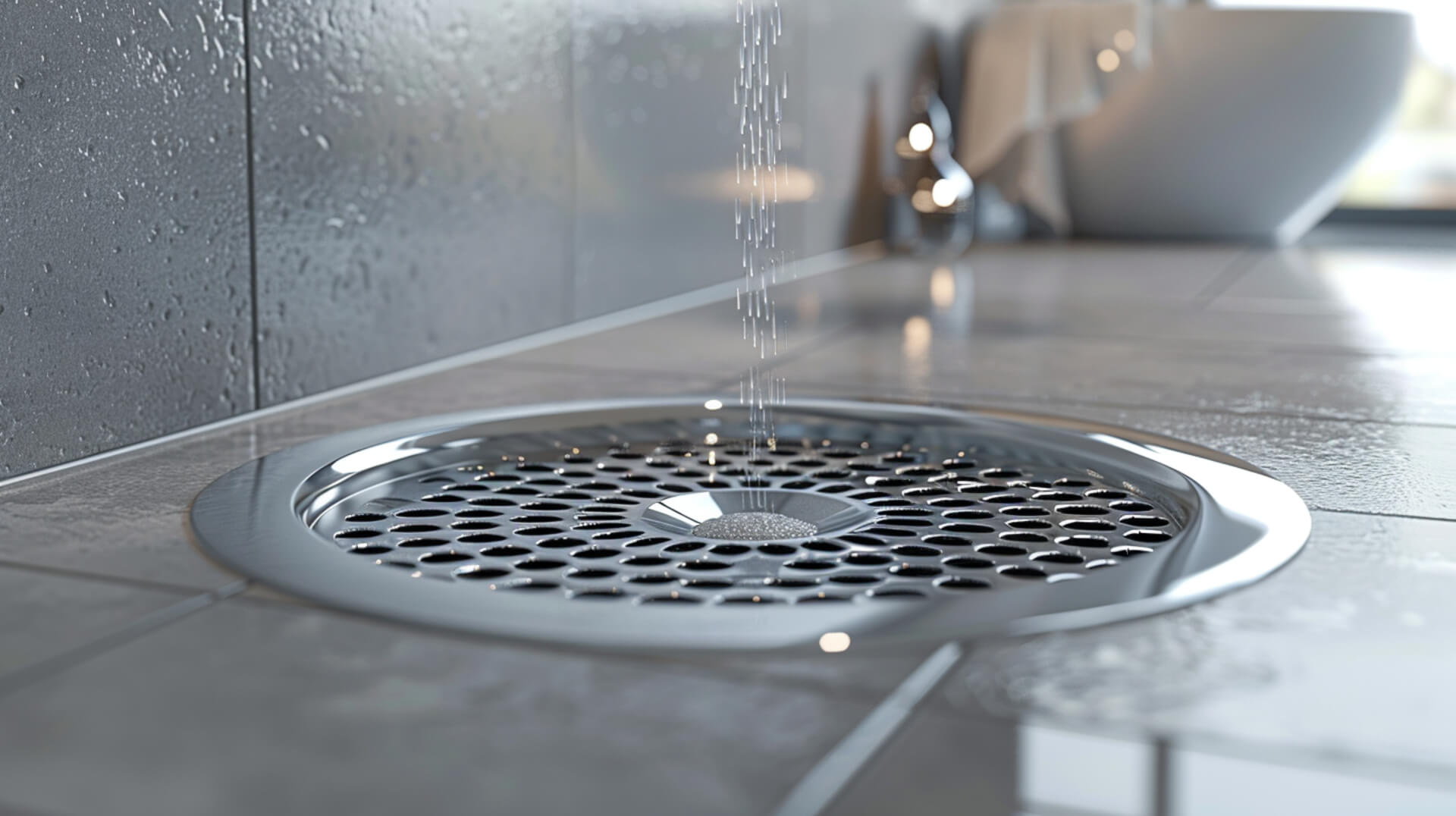
Implementing preventative measures is essential in maintaining clear shower drains and avoiding the inconvenience of blockages. Property owners can take several steps to ensure their drains remain free-flowing and functional.
Utilisation of Protective Screens and Drain Covers
Protective screens and drain covers are effective tools for preventing hair and other debris from entering the drainage system. By acting as a barrier, these devices capture materials that could potentially form clogs.
Regular Maintenance Practices
To keep drains clear, regular maintenance is recommended:
- Weekly Cleaning: Flush drains with hot water to dissolve soap scum and oils.
- Monthly Deep Clean: Use a mixture of baking soda and vinegar followed by hot water to break down accumulated debris.
- Drain Strainers: Clean strainers regularly to prevent buildup.
Mindfulness of Drain Usage
Being mindful of what goes down the drain is crucial. Avoid disposing of substances like oils, coffee grounds, and non-biodegradable items, as these can contribute to blockages.
Recommended Frequency of Drain Maintenance
For optimal results, property owners should conduct maintenance on their shower drains:
- Weekly: For routine flushing and strainer cleaning.
- Monthly: For more thorough cleaning with natural agents.
- Annually: Professional inspection to identify any potential issues early on.
By adhering to these practices, you can significantly reduce the risk of shower drain blockages and maintain a hygienic bathroom environment.
Environmental Considerations in Drain Cleaning
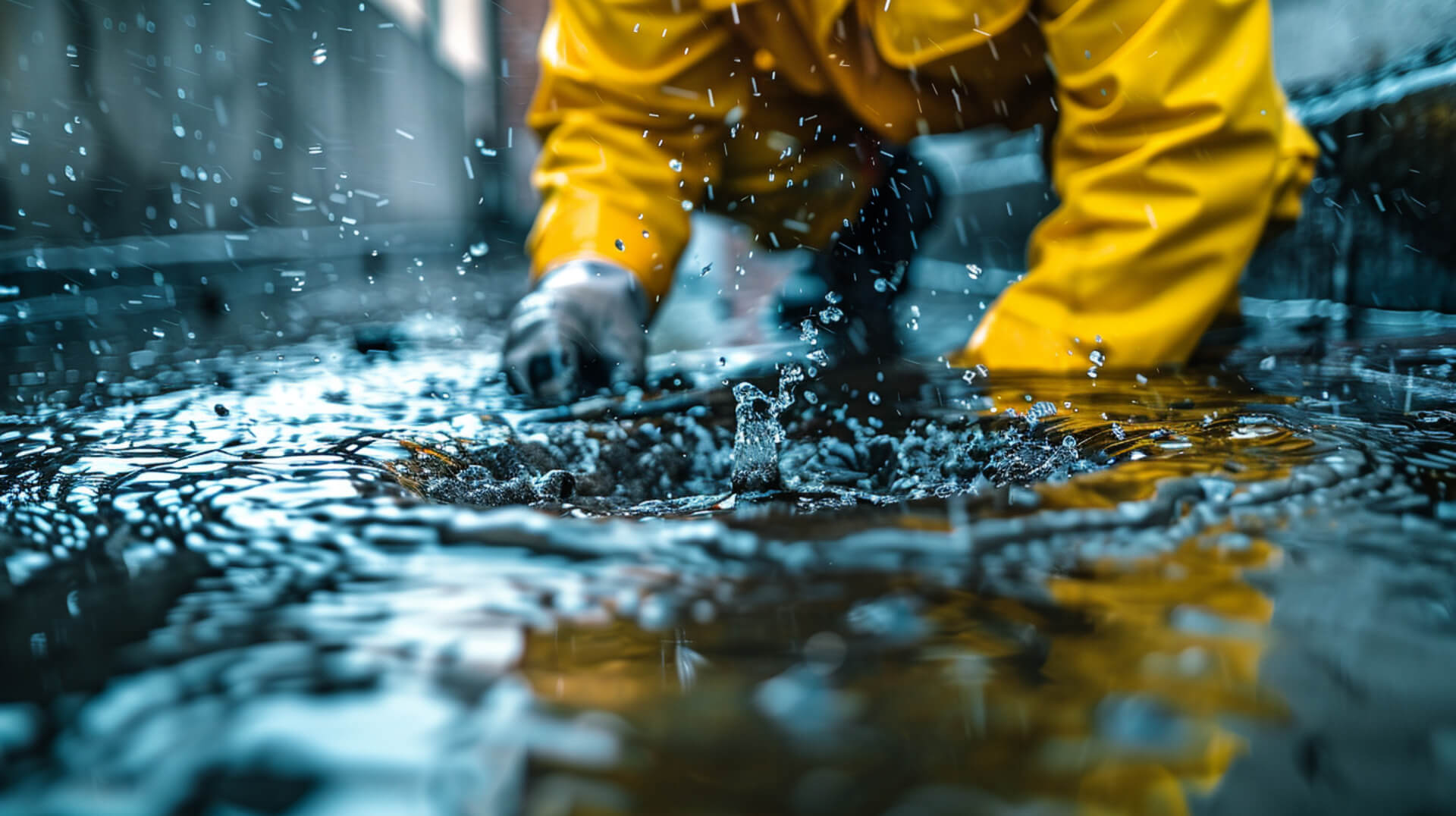
When addressing the issue of blocked shower drains, it is important to consider the environmental impact of the chosen cleaning methods. Chemical cleaners, while effective, can have detrimental effects on both the plumbing system and the broader environment.
Impact of Chemical Cleaners
Chemical drain cleaners often contain substances that can be harmful to aquatic life and may contribute to water pollution if not used responsibly. The use of such cleaners should be approached with caution, and alternatives should be considered where possible.
Avoiding Toxic Cleaning Mixtures
Property owners are advised to avoid mixing bleach, vinegar, and ammonia due to the potential release of toxic vapours. These substances can react to form hazardous gases that are harmful to human health and the environment.
Contribution of Natural Solutions to Sustainability
Natural solutions, such as baking soda and vinegar, offer a more environmentally friendly approach to drain maintenance. These substances are less likely to cause harm to wildlife and are biodegradable, reducing the ecological footprint of cleaning practices.
Best Practices for Eco-Friendly Drain Maintenance
For eco-friendly drain maintenance, consider the following best practices:
- Regularly flush drains with hot water to prevent buildup.
- Use a plunger or a drain snake to mechanically remove clogs.
- Employ natural cleaning agents like baking soda and vinegar for routine maintenance.
- Instal drain strainers to catch debris and minimise the need for chemical cleaners.
By adopting these practices, you can maintain clear shower drains while also supporting environmental sustainability.
Managing Hard Water and Limescale Buildup
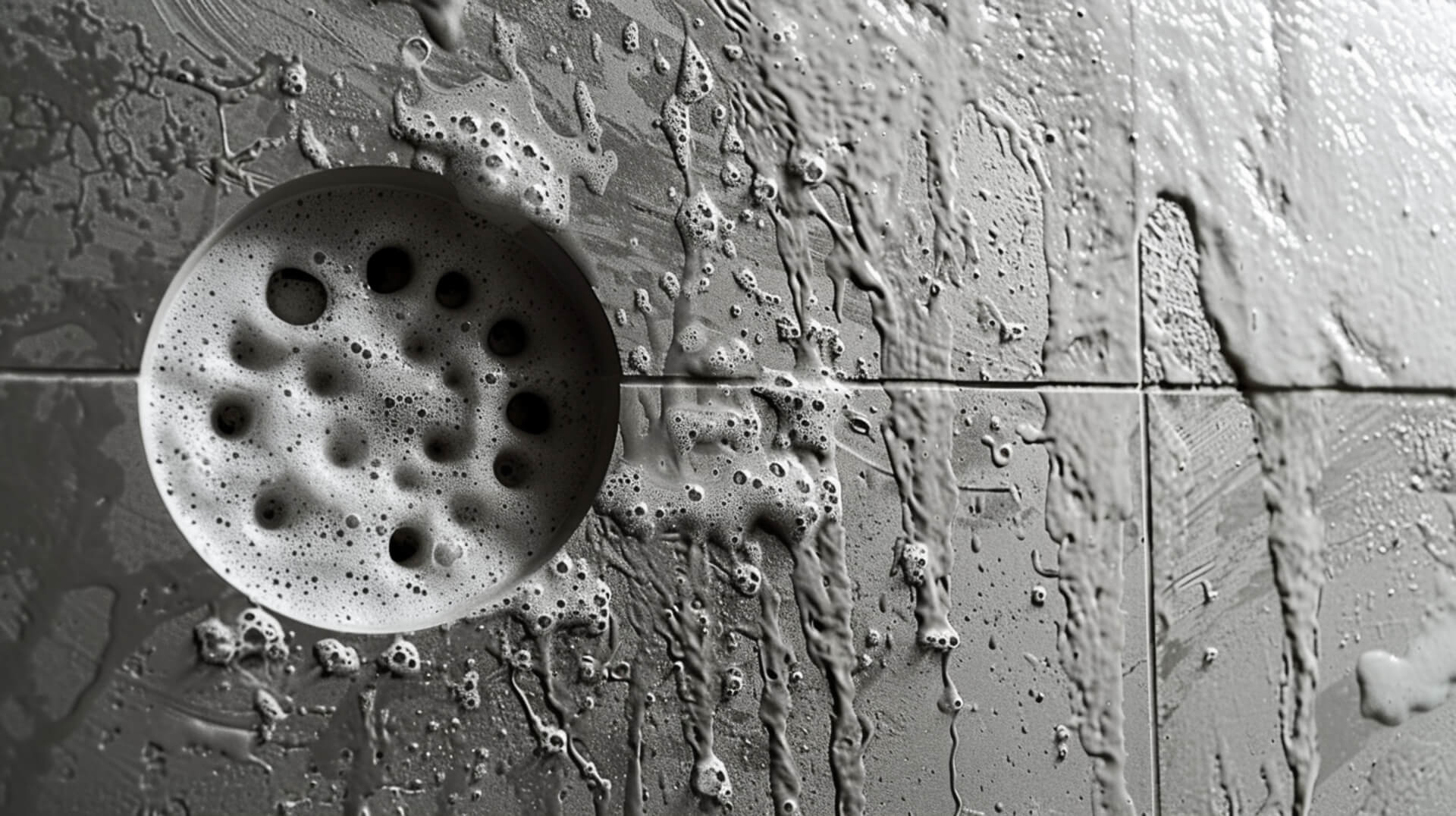
Hard water, characterised by high mineral content, can lead to limescale buildup in shower drains, which is a common cause of blockages. Property owners can mitigate these effects through various strategies.
Strategies to Mitigate Hard Water Effects
To combat the effects of hard water on your plumbing:
- Instal Water Softeners: These devices remove excess minerals from the water, preventing limescale.
- Regular Vinegar Rinses: Running vinegar through the shower drain can dissolve minor limescale deposits.
- Descaling Agents: Use descaling agents for more significant buildup, following the manufacturer’s instructions.
Effective Limescale Removal
For effective limescale removal:
- Mechanical Methods: Use a plumber’s snake or similar tool to physically remove the buildup.
- Chemical Solutions: Apply chemical descalers with caution, ensuring they are suitable for your plumbing.
Benefits of Water Softeners
Water softeners offer several benefits:
- Prevent Buildup: They reduce mineral deposits in pipes and on fixtures.
- Extend Appliance Lifespan: Soft water is gentler on appliances, potentially extending their lifespan.
Professional Services for Limescale
When limescale buildup is significant, professional services may be necessary:
- Professional Assessment: Experts can evaluate the extent of the buildup and recommend solutions.
- Advanced Cleaning: Professionals have access to powerful tools and agents to thoroughly clean your drains.
By taking these steps, you can manage hard water and limescale effectively, ensuring your shower drains remain clear and functional.
Cost Considerations for Unblocking and Maintenance
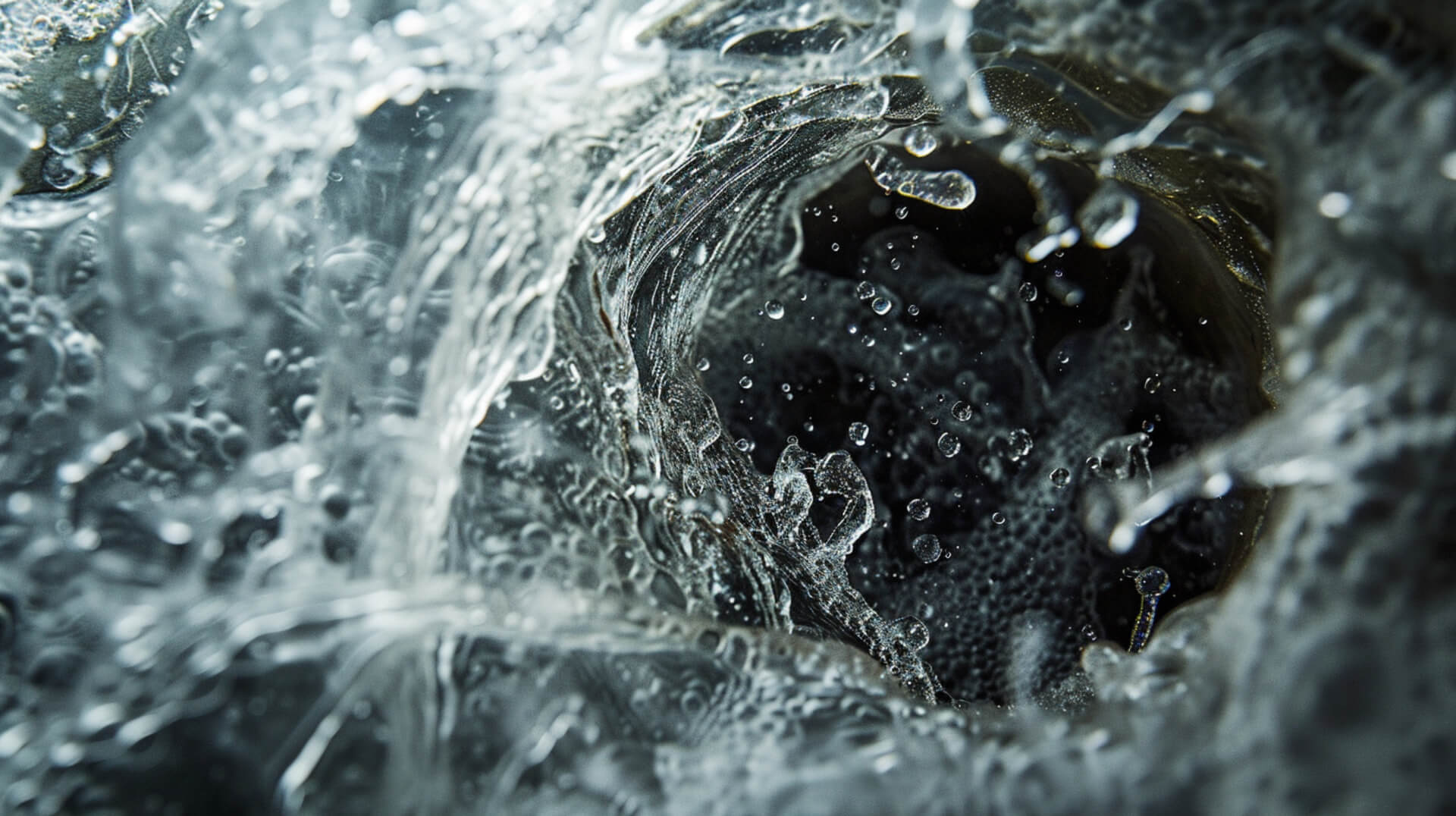
When dealing with a blocked shower, understanding the financial implications of DIY versus professional drain services is essential. Property owners must weigh the immediate costs against the long-term benefits of each approach.
DIY Versus Professional Drain Services
DIY methods can be cost-effective for minor blockages, with household items like baking soda and vinegar being inexpensive solutions. However, for more severe clogs, professional services may be necessary. While these services incur higher upfront costs, they offer expertise and specialised equipment that can resolve issues more thoroughly.
Factors Influencing the Cost of Addressing Blocked Showers
The cost of remedying a blocked shower can vary based on:
- Severity of the Blockage: More severe clogs often require professional intervention.
- Frequency of Occurrence: Recurring blockages might indicate a systemic issue, potentially increasing costs.
- Type of Service Required: Emergency services or after-hours calls may come at a premium.
Long-Term Benefits of Preventative Maintenance
Investing in preventative maintenance, such as regular drain cleaning and the installation of drain guards, can be cost-effective in the long run. These measures can prevent blockages, reducing the need for emergency services and prolonging the lifespan of your plumbing system.
Budgeting Tips for Managing Expenses
To manage expenses effectively:
- Regular Inspections: Schedule routine checks to catch issues early.
- Set Aside a Maintenance Fund: Allocate funds for unexpected plumbing repairs.
- Compare Service Costs: Obtain multiple quotes for professional services to ensure competitive pricing.
By considering these cost factors and implementing preventative strategies, property owners can maintain their shower drains efficiently and economically.
Key Takeaways for Maintaining Clear Shower Drains

Maintaining clear shower drains is essential for the functionality and hygiene of your property. A comprehensive maintenance plan is the cornerstone of preventing blockages and ensuring the longevity of your plumbing system.
Implementing a Comprehensive Maintenance Plan
To implement an effective maintenance plan:
- Regular Cleaning: Incorporate weekly and monthly cleaning routines using natural products like baking soda and vinegar.
- Preventative Measures: Instal drain strainers and avoid disposing of oils, coffee grounds, and non-biodegradable items in the drain.
- Professional Inspections: Schedule annual inspections with a plumbing professional to identify and address any potential issues early.
The Importance of a Proactive Approach
A proactive approach to drain maintenance can prevent the inconvenience of clogs and costly repairs. By addressing issues early and using preventative strategies, you can ensure that your shower drains remain clear.
Resources and Professional Assistance
For additional resources or professional assistance:
- Local Plumbing Services: Contact local plumbers for emergency services or routine maintenance.
- Online Guides: Utilise online tutorials and guides for DIY maintenance techniques.
- Hardware Stores: Seek advice and supplies from hardware stores for tools and drain care products.
By staying informed and vigilant, property owners can effectively manage their shower drainage systems and prevent common causes of blockages.
